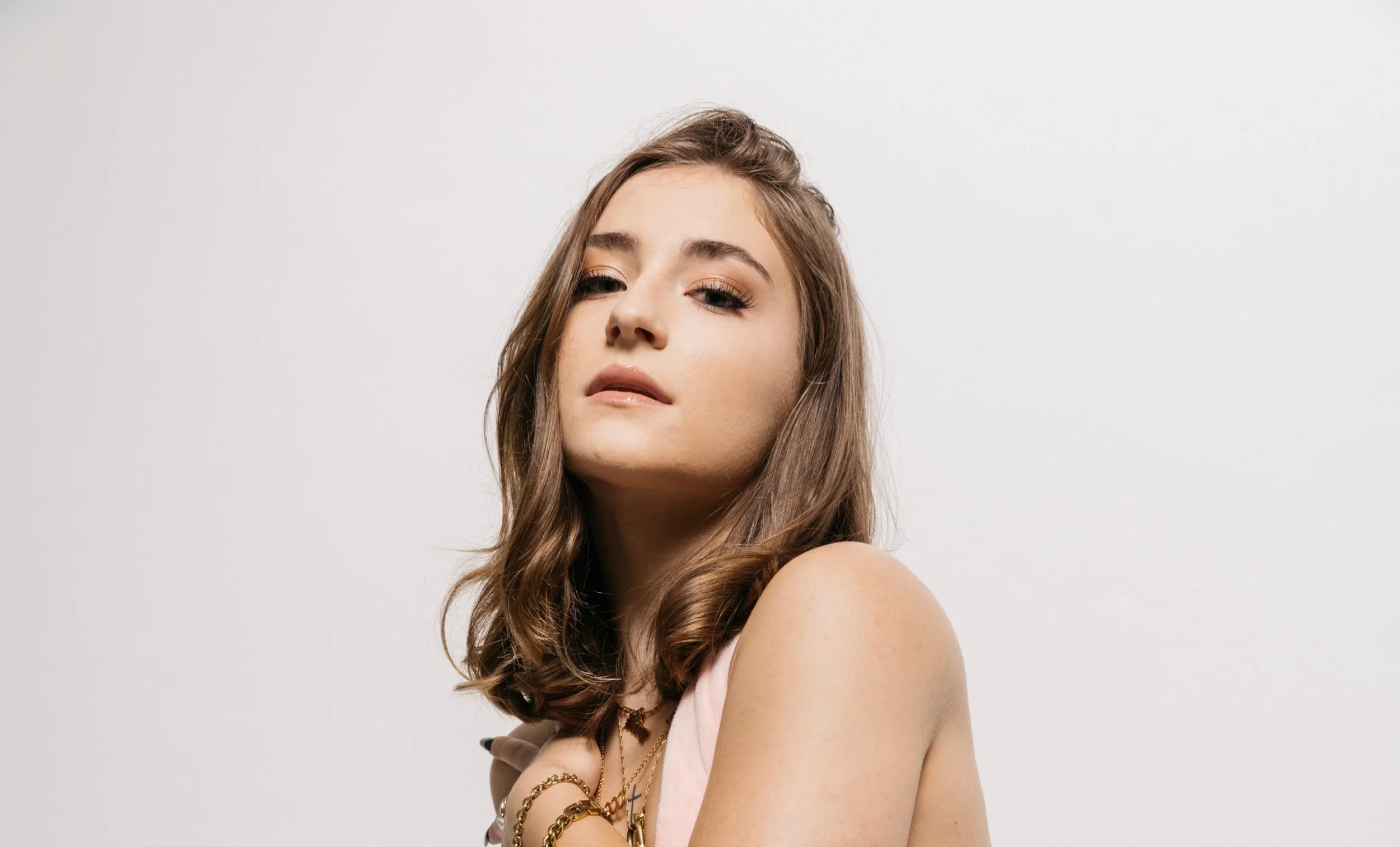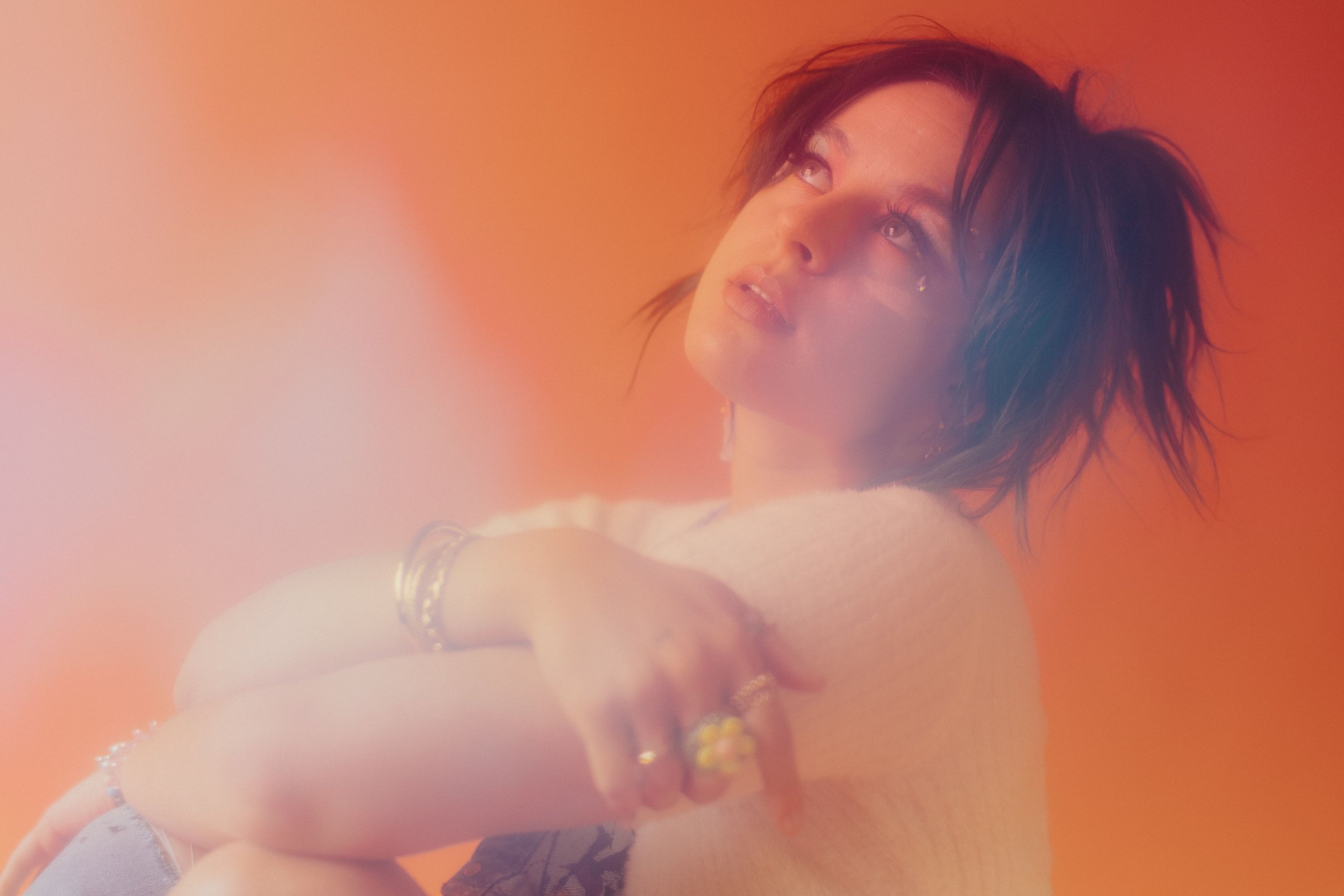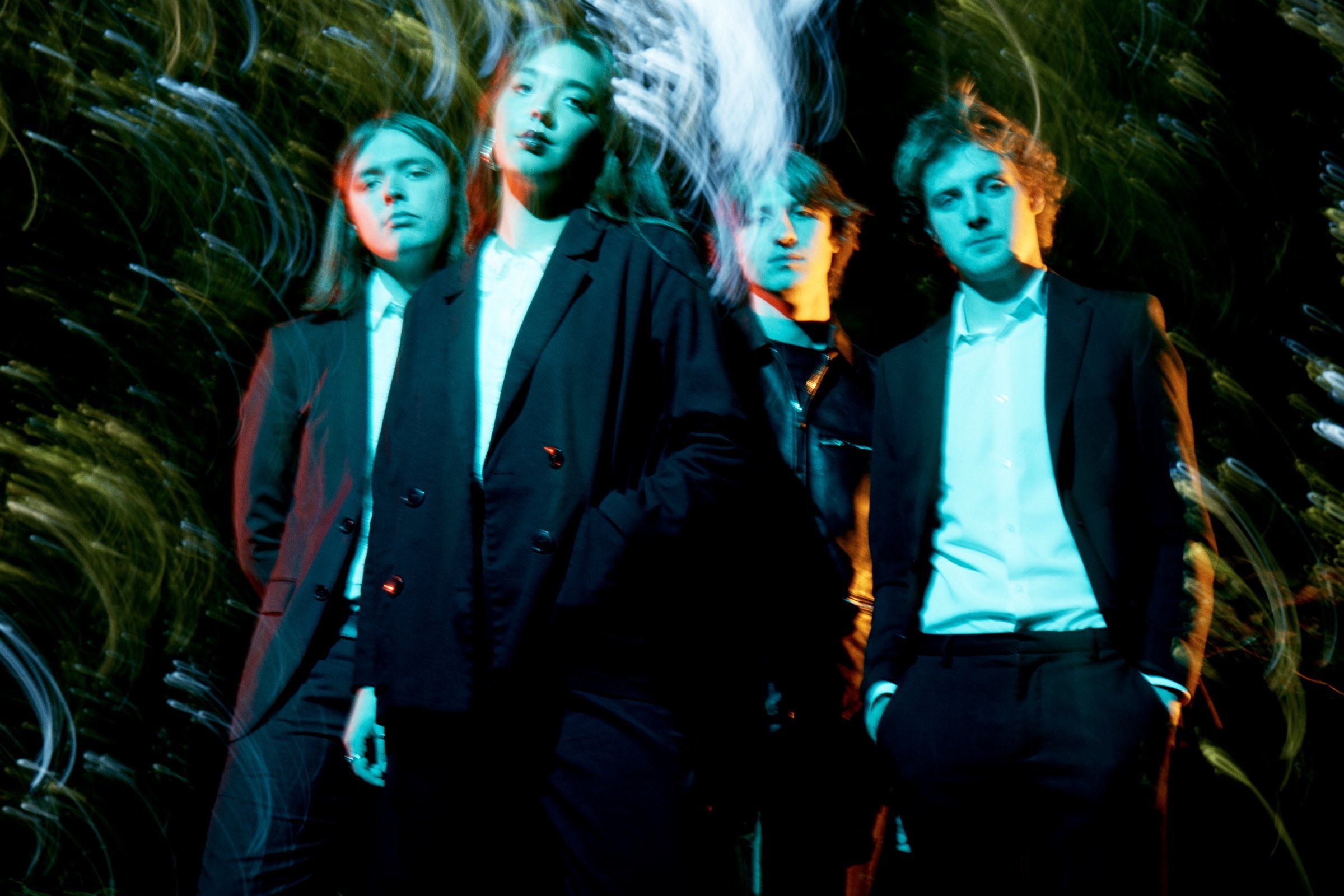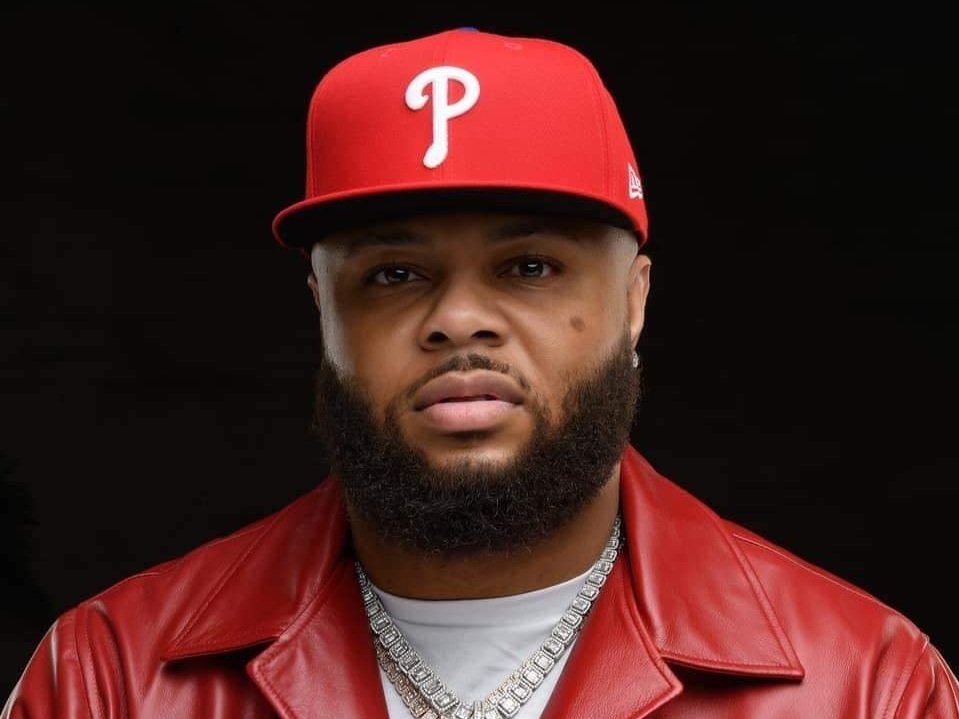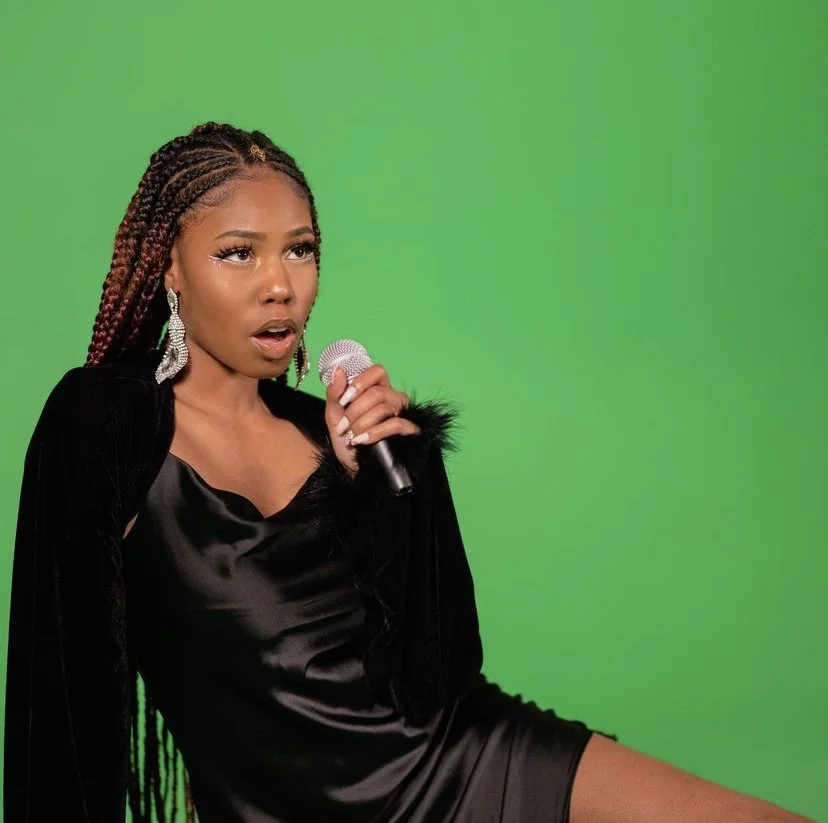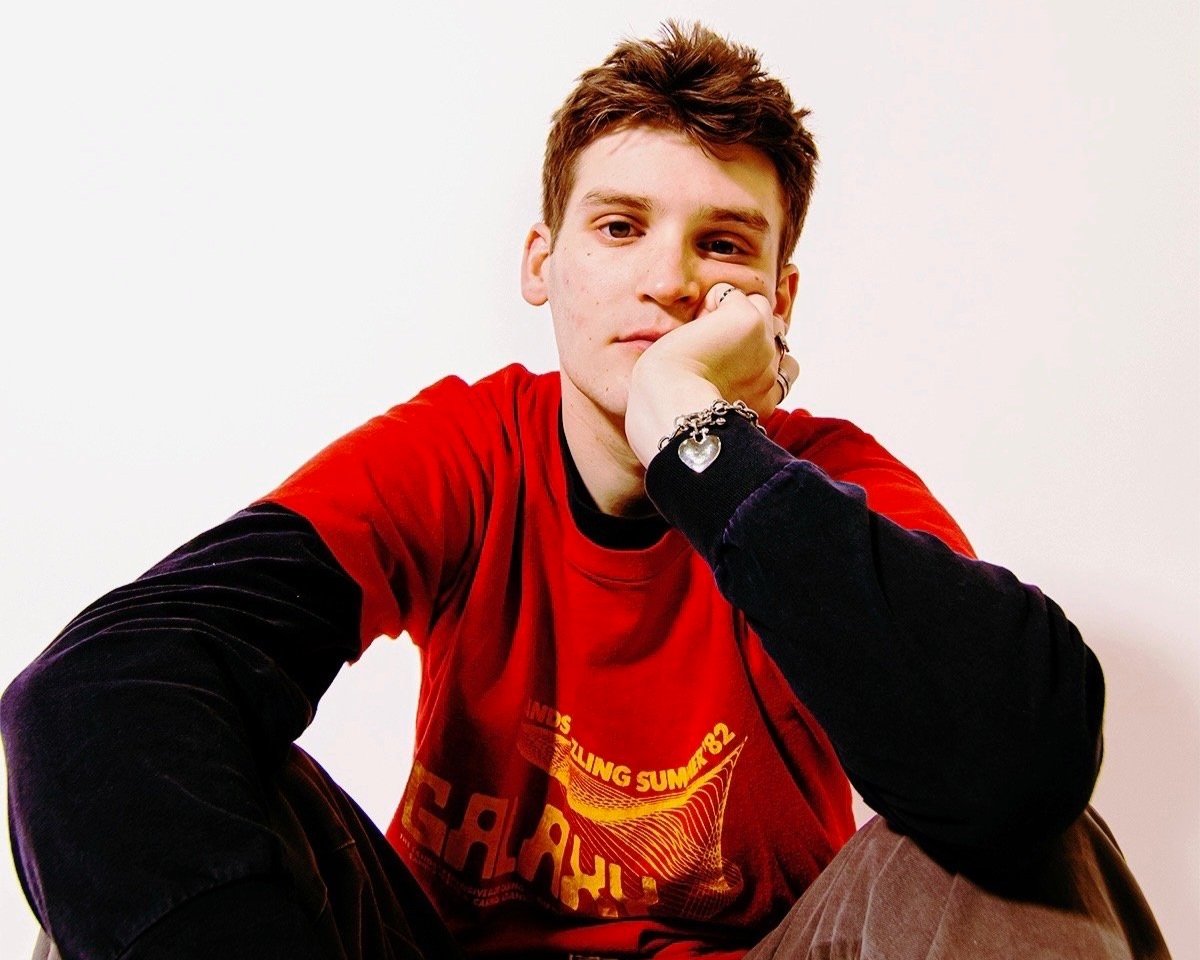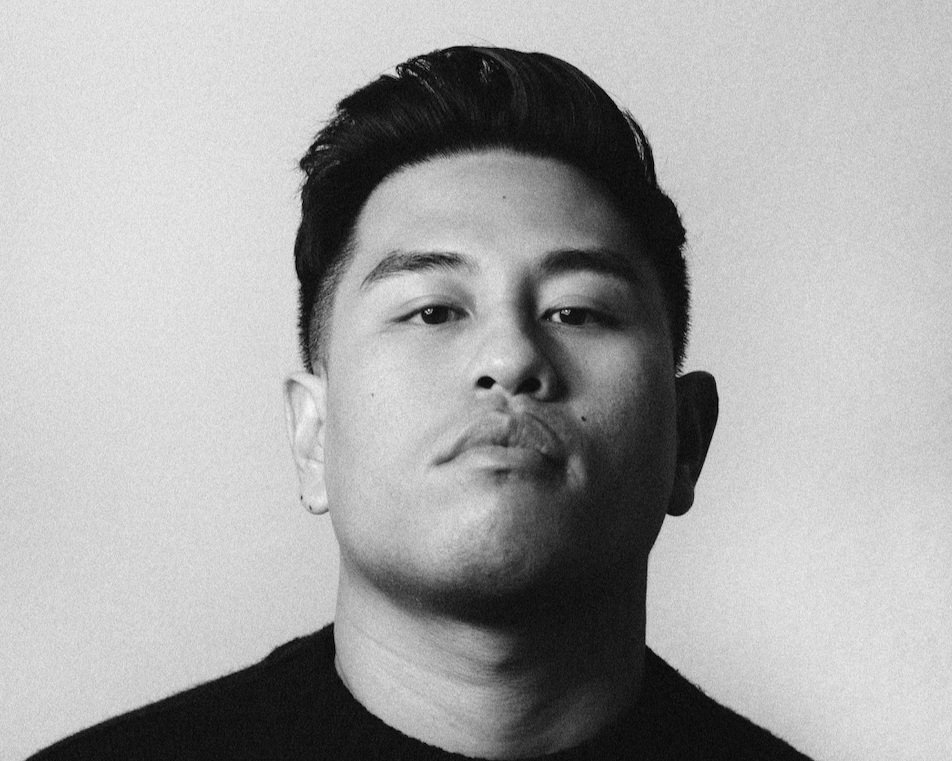Miette Hope explores her grief through genre-bending songwriting
Miette Hope is a Brooklyn, NY based singer-songwriter, producer. With a profoundly developed sense of musicality, she infuses her songs with a rare left leaning pop sensibility supported by a deep jazz and R&B foundation. Her style can best be identified by its poetically honest lyrics accompanied by spatially rhythmic grooves. Her project with Ariza, The Natural Synthetic has received continuous praise from publications like EarMilk and editorial placements via Spotify on playlists like, Salt, Soda, Hanging out and Relaxing, Fresh Finds.
Maria: How did you get into music? When was the day when you woke up and decided that this is what you want to do now?
Miette: It was never really a question in my mind about whether music was going to be in my life because my mom was playing in a band when she was pregnant with me. So I feel like in the womb I was hearing the music and feeling the rhythm you know. And I started piano lessons when I was super young, but I never wanted to practice. So then I started playing guitar and I got really into it and the only thing that made me really want to practice is to write songs. My mom taught me how to play guitar and I think I wrote my first song when I was like 10 or 11 and then just kept writing from there. And my mom played at different venues around town and later on in my life I started playing in her band. And I was singing background for her band and playing ukulele. Once I had enough songs built up and then I started playing around town and I think from there it was pretty obvious that it was the thing that I love the most, you know. So I went to an after school program for music and then I ended up applying to Berklee College of Music and in to music school. I was like – this is definitely going to be my life.
Maria: How would you describe the genre of your music? What are your influences?
Miette: Because I grew up in a musical household, we were listening to all kinds of different music in the house. Growing up we were listening to folk music, jazz. Some more experimental stuff. My parents loved Bjork. Bjork was a very early influence of mine. I love how she's kind of changed over the years and it seems like what she does is really boundless. She doesn't feel a need to put herself in any box. She just expresses herself how she wants to and that was really inspiring for me at an early age. But then we also listened to a lot of Radiohead and Leonard Cohen, and so those were like my early influences, mainly indie, experimental, folk jazz. And then when I got to music school, I was exposed to r&b and neo soul for the first time.
So early on I always had that folk experimental, influenced by the first couple of songs I put out, were very much in the neo soul r&b realm. But then, after I put out my first few songs, people noticed I was doing the artists thing, and I got reached out to by a few different producers who were a bit more on the electronic side. And then that kind of became an aspect of my music. So it's kind of just developed over time, but now I feel like my music feels a bit genreless.
Maria: What made you start producing?
Miette: Who I put out my first few sings the were written in my bedroom by myself. So I learned how to read sheet music and make arrangements. I didn't even realize it at the time, but that was technically producing, because I was making these arrangements and then bringing them to the band. And then getting an engineer to record us. I actually was pretty anti-electronic until I worked with the right producer – Ariza. He had this kind of experimental aspect to his sound and he was being creative and trying things that I had never seen any producer try. And we really just kind of became musical soulmates. I really grew to have a trust with Ariza and so we made a lot of songs together and then we ended up creating a project which is The Natural Synthetic. And then I had him do my EP with me in 2019, and that's where I was a lot more involved in picking the sounds. For my EP, I was really specific about what I wanted. Because it was exploring the grief process. “Pendulum” that came out in 2019 talks a lot about me losing my dad and my reaction to that and the way that I've moved through that grief. But after that, basically, really what got me into fully being a producer was that the pandemic hit, and I didn't have any sessions, all of my other jobs were getting canceled and at this point I was also working as a songwriter, writing songs for other artists as well as just you know, continuing to focus on my artistry. So I was basically just at home and this was before people were collaborating on Zoom. I just really couldn't handle the restlessness that I felt during that time. I'm not really the kind of person who can sit around. So I was just like, “oh, you know what, I have Ableton on my computer”. I just opened it up and started trying to reference some of my favourite songs. That's really how I started to learn. From there, I just I had so much time, that I was able to really get experience under my belt quicker than I would have had I been doing my normal life on top of trying to learn production. And I started sending some of the beats I was making around to some trusted collaborators.
And now I've really just been in sessions with a lot of artists and working on the rest of my EP that is coming out. And it's just been really exciting to kind of graduate into that aspect of my music career because it's super empowering as a woman to be in that space and to be capable in that way. And I think for a long time. I wanted that. And I just didn't pursue it because it felt like such a male dominated space.
Maria: Can you tell me more about your creative process behind writing your song Fragments?
Miette: Fragments was written on a day when I basically just didn't have much else on my head. One of those days where I had purposefully not scheduled any sessions and probably earlier in the day, I was doing things like emails and all the administrative things that I had to do. But it was one of those days I think I just sat down with my acoustic guitar and had got like wiltse progression. I feel like a lot of people aren't making music in 3/4 anymore these days. And it just felt like this kind of sweet sacral feeling when I was creating it and I, for some reason, maybe I had seen something about it or it was just in my mind, the Humpty Dumpty, fairy tale, nursery rhyme. I was just kind of thinking about it. And the thing about Humpty Dumpty is that his story never really ends on a positive note. It's essentially – Humpty falls, breaks and he can't get put back together again. And I think I felt in a lot of ways that I related to that character. Not that I'm not resilient, but I've been through a lot in my personal life growing up, with the addict father and him passing away. A lot of that trauma has impacted me as a person and I think there's been there's been times in my life where I wondered if I if I'm broken. And I think that relating to the Humpty Dumpty story, it's like he's still Humpty Dumpty, even when he wasn't put back together again. It's not that they don't necessarily say things like, “oh, Humpty died or like Humpty can't it can't move forward”. So I was relating to that story. It was kind of like an exercise of just accepting that and looking at it. So essentially for the songwriting on Fragments, I imagined myself as Humpty Dumpty. And I wanted to find a way to turn that pain into something beautiful. And that's what a lot of my music is about. It's definitely really real and talks about the hard things because I think a lot of people don't have an artistic outlet to process through what they're going through. All of us experience hardships in our lives, big or small. And I think, for me, it's really helpful to write these songs to kind of process through those emotions and it's my hope that people could relate to it. Who have been through something similar and are able to listen to it and feel understood.
Maria: Do you have any upcoming future projects that we can see or hear?
Miette: I'm currently mixing my next single it's called “Happy People”. This next song is completely self produced. The concept behind the song is “what happy people do?” And in the verses it's saying, I leave the house, I go get coffee, I go to my friend's birthday party, all these things that I do, to essentially convince the rest of the world that I'm happy. I think happiness is such a concept that has become really diluted over time. We're so concerned about this idea of happiness. I think it's definitely more gray than black and white.
This song is definitely coming out probably sometime in mid November. I'm really excited about it. It's one of my favorite songs I've done so far. And I think it talks about something that not a lot of people talk about. I think everyone says that the goal is just to be happy. But I think it's more complex than that. And I think you look around and look at all these happy people. They're probably probably dealing with something. But they're not going to tell you that, so I think that no one really knows what happiness is. But I think it's an interesting question to explore. And that's kind of what I'm doing conceptually, throughout my work.







